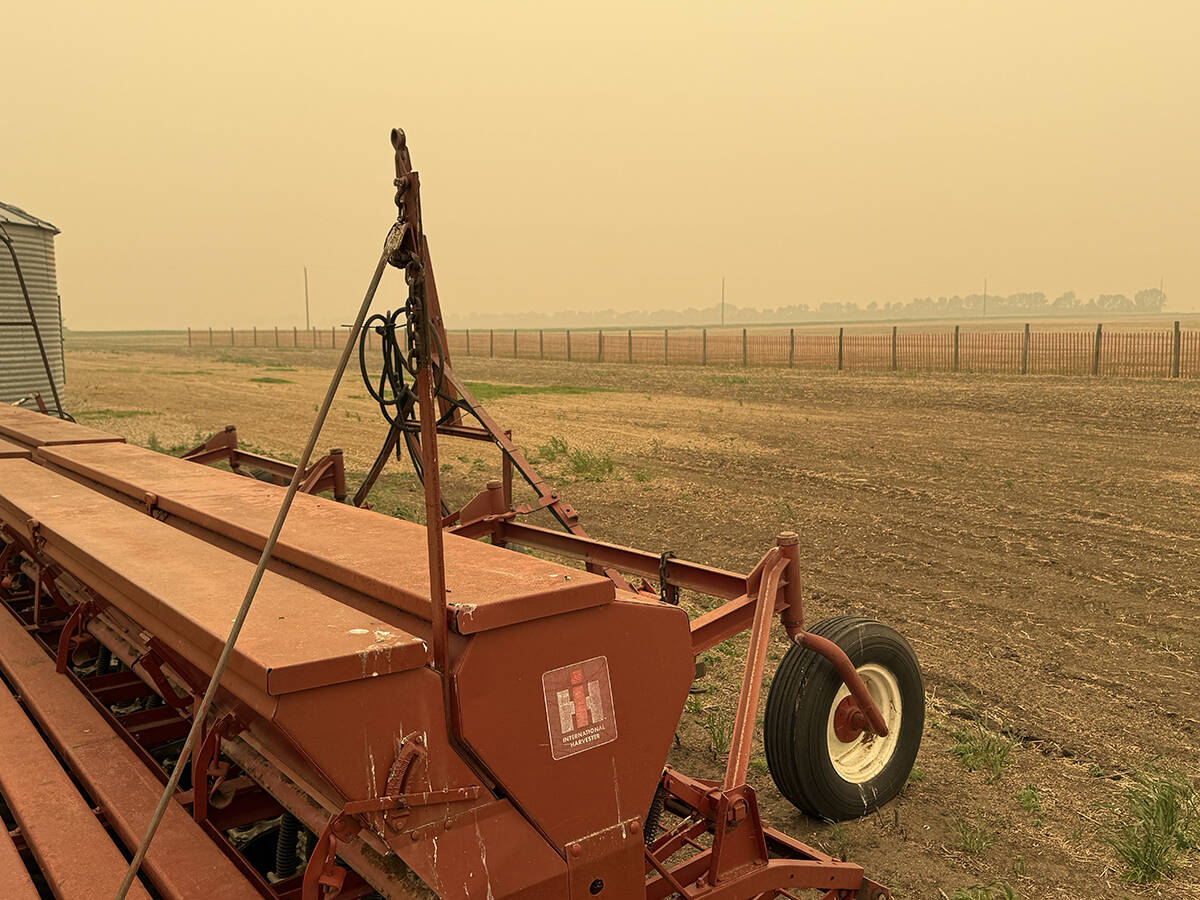It is not yet a year old, but Canada’s agriculture ministers and farmers have already discovered a shortcoming with the AgriStability program.
Federal and provincial agriculture ministers are negotiating changes to the farm support program to try to better deal with struggling livestock producers with several years of poor returns who will have a difficult time triggering help.
“They are having problems with margins,” federal agriculture minister Gerry Ritz acknowledged.
“I am in discussions with my provincial counterparts. We haven’t been shy about changing programming on the go. We want to be sure they are bankable, predictable, stable. We want to make sure they hit the target.”
Read Also

Wildfires have unexpected upside this year
One farmer feels smoke from nearby wildfires shrouded the July skies and protected his crop from the sun’s burning rays, resulting in more seeds per pod and more pods per plant.
Ritz would not speculate on what changes are being considered but promised governments will “go to the wall” to help producers.
However, Ritz was cool to one of the key requests that hog producers are making these days – an extra year to pay back emergency cash advances they received earlier this year.
A year ago, federal and provincial agriculture ministers threw struggling livestock producers a lifeline by allowing emergency government-guaranteed cash advances of up to $400,000, with the first $100,000 interest free. They come due after a year.
However, producers still struggle with high costs and low returns, and many are in no position to repay the loans when they come due.
The Canadian Pork Council has asked governments to give them one more year to repay.
“There is no question being forced to repay when the loans come due next spring or summer would cause tremendous stress in the industry and would certainly put some producers out of business or force them into foreclosure, and I do not see how that is in the government’s interest,” CPC safety nets chair Stephen Moffatt said.
“I see no downside for the government and much downside for the industry that hasn’t really recovered since the loans were received.”
Ritz said he has yet to be convinced.
“We’ll analyze this, we’ll watch it, we’ll make adjustments as needed,” he said.
“It’s not something I want to do. Anytime you start to compound or extend something like this, it distorts the marketplace a bit and I’m loath to do that but at the end of the day, we’ll do what’s best for producers.”
Moffatt said at the very least, governments should compensate producers who lost margins because of hog disease losses.
Years ago, governments promised a production insurance scheme as a form of crop insurance for livestock. It still has not happened.
“That is clearly a place where governments should have an obligation to help,” Moffat said.
“We are very sensitive to trade distorting measures, but a production insurance program would have protected some margins.”
Liberal agriculture critic Wayne Easter said he will make help for the livestock industry a major issue in Parliament.
“In Prince Edward Island, 80 percent of the hog industry has exited in the last year or two and in my riding, there are just two producers left,” he said. “This is a crisis that the government has to address.”














